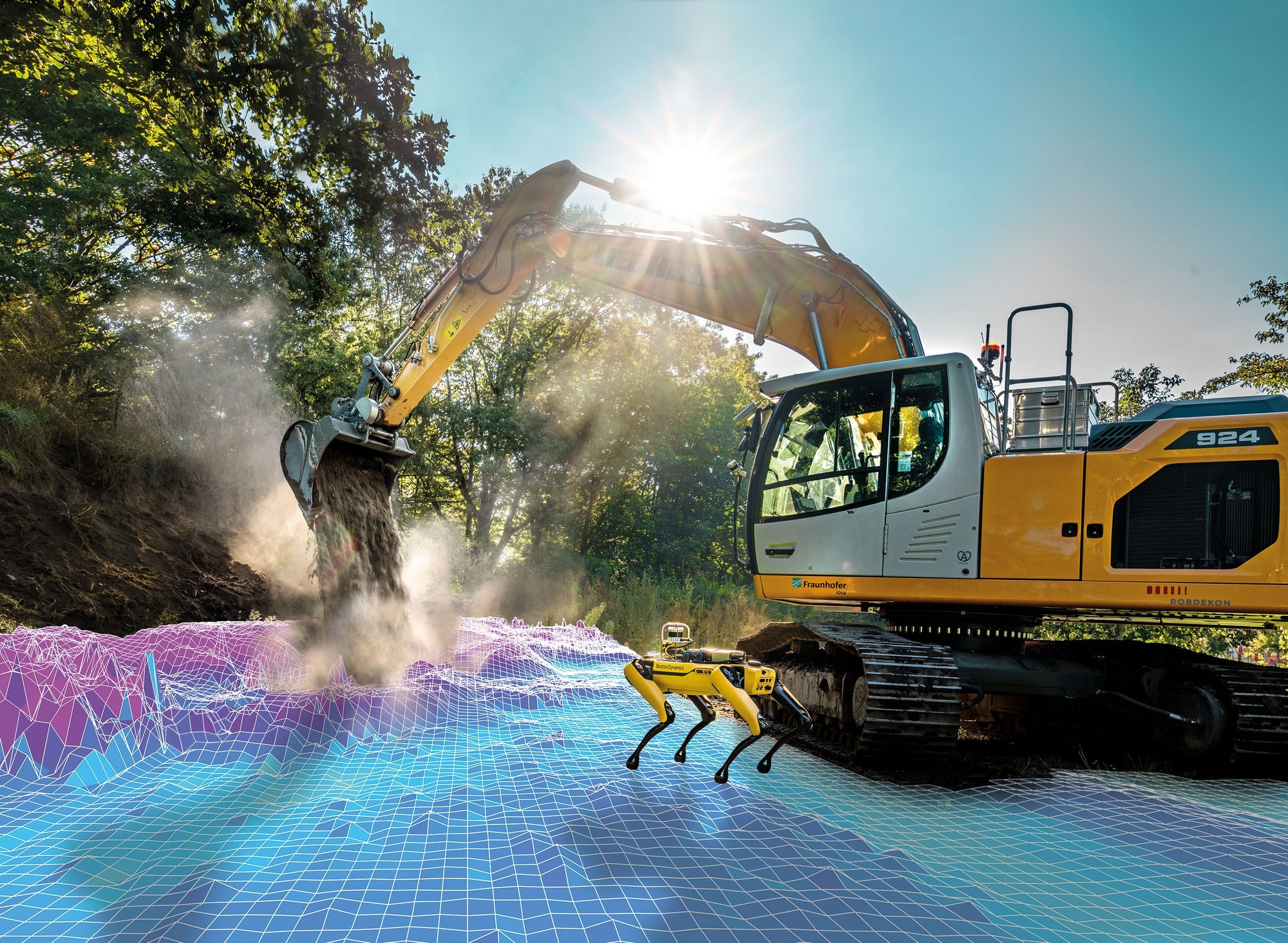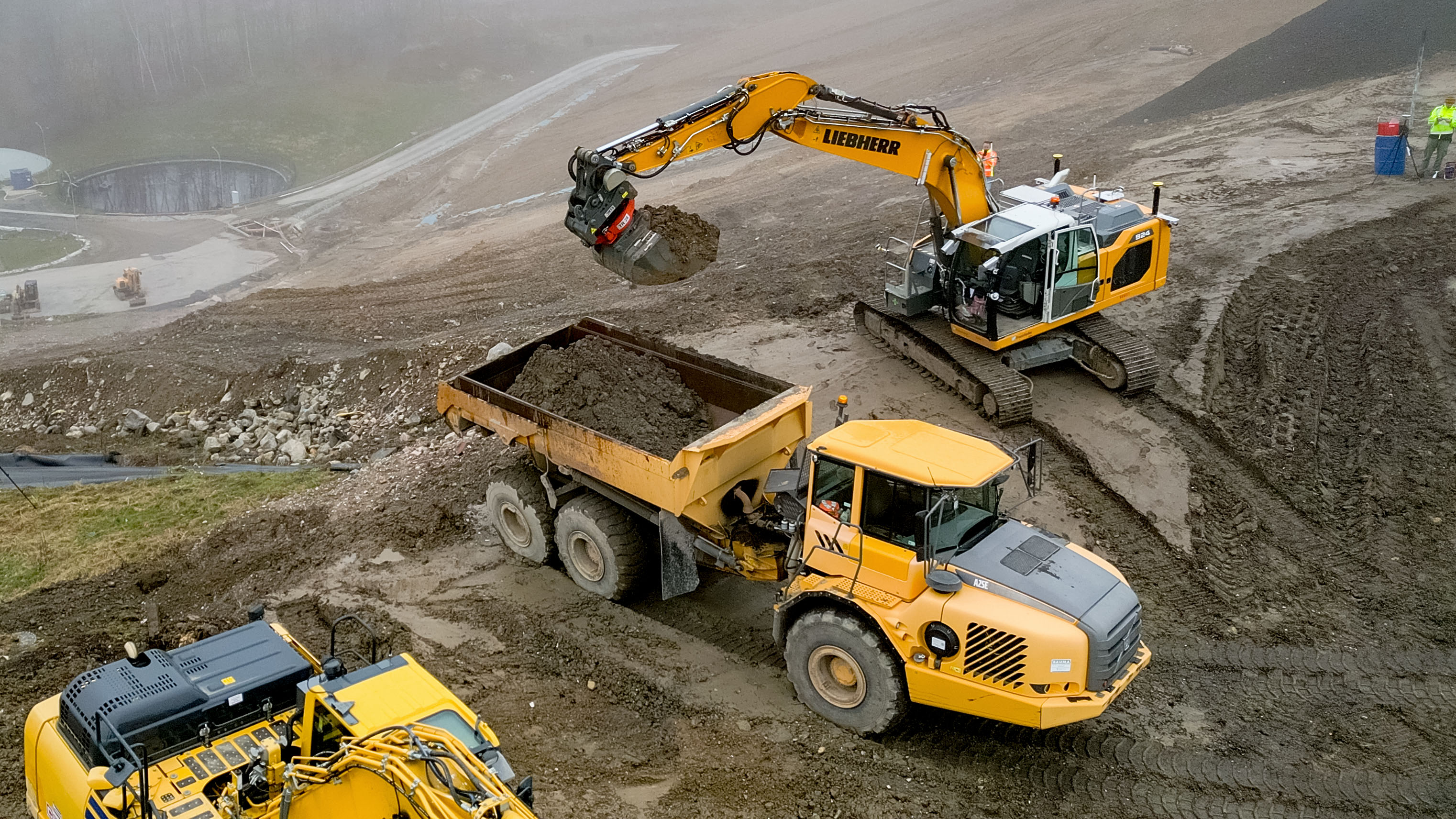Fraunhofer IOSB drives forward the topic of large-scale robotics in the new Robotics Institute Germany
* Fraunhofer IOSB will establish the field of AI-based large-scale robotics in the Robotics Institute Germany (RIG), which has now been presented for the first time - this includes autonomous construction machines, agricultural robots and other heavy-duty machines that perform complex tasks independently.
* Similar issues have so far been researched in particular at the Robotics Competence Center for Decontamination in Hazardous Environments (ROBDEKON). IOSB head of institute and ROBDEKON spokesperson Prof. Jürgen Beyerer presented the results of this work at the "AI-based Robotics" (KIRO) conference in Berlin on June 18.
* The conference participants were also able to commission an autonomous excavator over 500 kilometers away to recover barrels live.


The Robotics Institute Germany is a decentralized competence network funded by the Federal Ministry of Education and Research with 20 million euros. Its mission is to promote cutting-edge research, talent development, and innovation in the field of AI-based robotics in Germany. The Technical University of Munich coordinates the project. As one of the consortium partners, the Fraunhofer Institute of Optronics, System Technologies and Image Exploitation IOSB is responsible for establishing the large-scale robotics cluster.
Focus on transfer and industrial cooperation
"In line with the Fraunhofer mission, we want to promote the transfer of research into practice in the field of large-scale robotics and focus on cooperation between science and industry," explains Prof. Jürgen Beyerer, head of Fraunhofer IOSB. The existing laboratory for autonomous construction machinery at Fraunhofer IOSB is to be expanded into an open RIG large-scale robotics laboratory networked with other infrastructures.
Efficiency, relief, and reduction of hazards
Autonomous large-scale robotics includes advanced robotic systems such as autonomous construction machines (excavators, wheel loaders, cranes, etc.), agricultural robots, and other heavy-duty machines (clearing vehicles, refuse collection, etc.). These robots can move in large-scale and unstructured environments and carry out complex exploration and manipulation tasks independently.
"The systems use artificial intelligence to interpret sensor data and react accordingly. This enables them to perform tasks autonomously, i.e. without direct human control. This offers many advantages: It increases efficiency, relieves skilled personnel of monotonous and repetitive tasks, and, above all, can also avoid accident risks and health hazards. Just think of hard-to-reach and dangerous environments, such as contaminated areas," explains Dr.-Ing. Janko Petereit, head of the RIG large-scale robotics laboratory at Fraunhofer IOSB. Other conceivable fields of application are the construction and agricultural industries.
Live demonstration: Autonomous excavator over 500 km away
Participants at the KIRO conference were able to see for themselves how far technical developments in this area have already progressed through a live demonstration: at the ROBDEKON information stand at the conference in Berlin, they were able to communicate with the autonomous 24-tons excavator ALICE on the Fraunhofer IOSB site in Karlsruhe, give it orders to recover barrels, and monitor the execution using live images from the sensors installed in the excavator.
Last modified:
 Fraunhofer Institute of Optronics, System Technologies and Image Exploitation IOSB
Fraunhofer Institute of Optronics, System Technologies and Image Exploitation IOSB